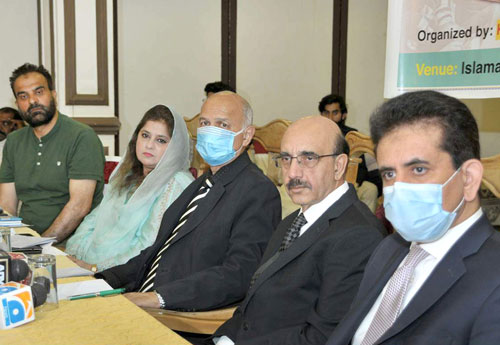Staff Reporter Islamabad
President of Azad Jammu and Kashmir Sardar Masood Khan has deplored the role of the international community, mainly the UN, in the long-standing Kashmir dispute, calling it ‘conspicuously disappointing.’
‘The UN role in Kashmir has been conspicuously disappointing because practically it has taken a hands-off approach, though they realize Kashmir is the elephant in the room,’ Masood Khan said in an exclusive interview with Anadolu Agency on the occasion of Kashmir Martyrs Day, which is being commemorated across the Line of Control (LoC).
‘The US wants the status quo, an option preferred by India, and the European Union is hamstrung.
But the citizens of the world can be mobilized. Today, for the Kashmir cause, the streets are more promising than official chambers – bilateral or multilateral,’ AJK President said.
By ignoring the Kashmir issue, Khan added, powerful nations which claim to be the custodians of international law are ‘underwriting impunity for crimes against humanity’ in Jammu and Kashmir.
Khan, a veteran diplomat who served as Pakistan’s permanent representative to the UN from 2012 to 2015, contended that New Delhi is looking for a ‘cosmetic engagement’ with Islamabad for ‘good optics’ following the scrapping of the valley’s decades-long special status.
India ‘wants to give a false impression that Pakistan is ready to live with the changes India has made since Aug. 5, 2019. But Pakistan has not. Pakistan has made it clear that it would not hold any bilateral talks until it reverses its actions of August 2019.’
Replying to a question about the resumption of long-stalled peace talks India and Pakistan, Khan said bilateral talks in the past on Kashmir have never produced results because India’s sole purpose is to ‘bury the issue for all times to come.’
‘That’s not acceptable to Kashmiris. I see little utility of such talks if the Kashmiris, whose fate is at stake, are not sitting at the negotiating table.
The official international community has no desire for playing a role to resolve the issue,’ he added.—INP










